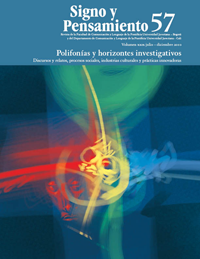Abstract
It is not an exaggeration to point out that due to the dimension and complexity achieved, the phenomenon of internal displacement - that forced migration that legal and illegal armed groups have established in the country in their fratricidal struggle for territory - can be categorized for Colombia and the world as a "social and humanitarian tragedy".
Although very partial and incomplete, we have been aware of this sad and painful reality that we live through the information provided by the different media, social movements, non-governmental organizations, academic institutions and government agencies of the municipal, departmental and national levels. Overwhelmed in its figures, its consequences and its limits, the phenomenon demands different perspectives for its approach, understanding, approach and attention.
This journal is registered under a Creative Commons Attribution 4.0 International Public License. Thus, this work may be reproduced, distributed, and publicly shared in digital format, as long as the names of the authors and Pontificia Universidad Javeriana are acknowledged. Others are allowed to quote, adapt, transform, auto-archive, republish, and create based on this material, for any purpose (even commercial ones), provided the authorship is duly acknowledged, a link to the original work is provided, and it is specified if changes have been made. Pontificia Universidad Javeriana does not hold the rights of published works and the authors are solely responsible for the contents of their works; they keep the moral, intellectual, privacy, and publicity rights.
Approving the intervention of the work (review, copy-editing, translation, layout) and the following outreach, are granted through an use license and not through an assignment of rights. This means the journal and Pontificia Universidad Javeriana cannot be held responsible for any ethical malpractice by the authors. As a consequence of the protection granted by the use license, the journal is not required to publish recantations or modify information already published, unless the errata stems from the editorial management process. Publishing contents in this journal does not generate royalties for contributors.


